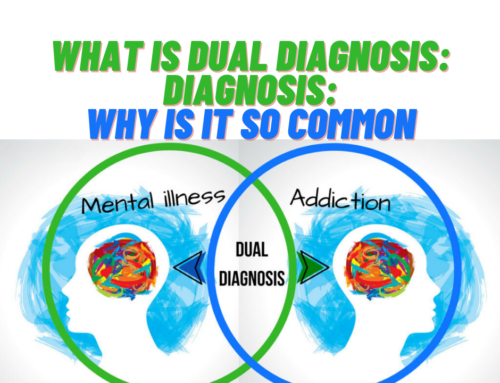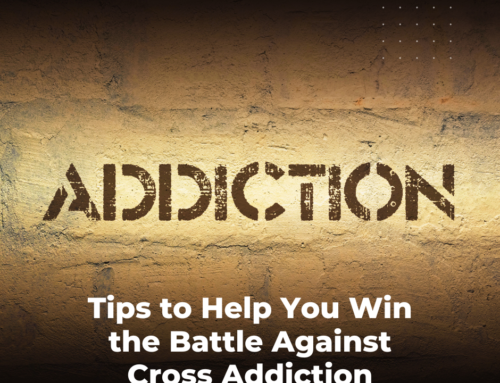We often use “addiction” and “dependence” interchangeably to refer to a substance use disorder but they don’t quite mean the same thing. However, they are closely related and there is a large area of overlap.
When we talk about “dependence,” “physical dependence,” or “chemical dependence,” it refers to the physiological ways your body adapts to a substance, or building a tolerance. The constant presence of foreign chemicals forces your body to adapt, which is why you gradually need more of the substance to feel the same effect. However, because of these adaptations, your body also needs that substance just to function normally. For example, alcohol and benzodiazepines both enhance the effect of the inhibitory neurotransmitter GABA. After using these substances regularly for a while, your brain gets the message that you have too much GABA in your system and so it starts producing less of it. So when you quit drinking or using benzodiazepines, you have too little GABA, so you end up feeling irritable, tense, and possibly even having seizures because your body is used to the presence of more GABA. In other words, your body depends on the presence of a substance for normal function.
Addiction is a broader term that refers to the behaviors around a substance. If you’re addicted to a substance, you are likely to be dependent on it as well. Dependence can also lead to addiction because withdrawal is often unpleasant and someone with a physical dependence might keep using out of fear of withdrawal. However, addiction can also happen with no substance at all, such as when people develop addictions to gambling or sex. Since these activities also trigger the brain’s reward system, people who quit these activities may feel a kind of withdrawal, but clearly there’s no dependence on an external substance.
What mainly distinguishes an addiction from dependence is your behavior. Although dependence is typically part of addiction, much of addiction is psychological. Common characteristics of addiction include prioritizing substance use above everything else, even friends or family, setting aside time specifically to drink or use, becoming secretive or lying about your substance use, borrowing money or stealing to pay for drugs or alcohol, and, most importantly, trying to quit but being unable to. Substance use essentially becomes the center of your life. Some even call it a learning disorder in which your brain restructures itself around the single purpose of using drugs or alcohol.
Addiction is typically a deeper problem than dependence. For example, many people who have become dependent on opioid painkillers have been able to taper off under a doctor’s supervision without too much trouble. However, addiction typically includes other factors, such as a co-occurring mental health issue, dysfunctional family dynamics, or trauma. These other factors must also be addressed to have the best chance of overcoming addiction.
At Alta Lama Transformational Services, you will meet knowledgeable, compassionate professionals that understand addiction in all its forms. Alta Lama uses an integrative and holistic approach to treat addiction and mental health issues. No treatment is one-size-fits-all, where you will have a team of experts prepared to create your customized treatment plan. We offer care for your mind, body, and spirit, so that you can heal from the inside out and look forward to a lifetime of sobriety and wellness. If you are ready to take the first step in your recovery, please call us at 866-457-3843.



